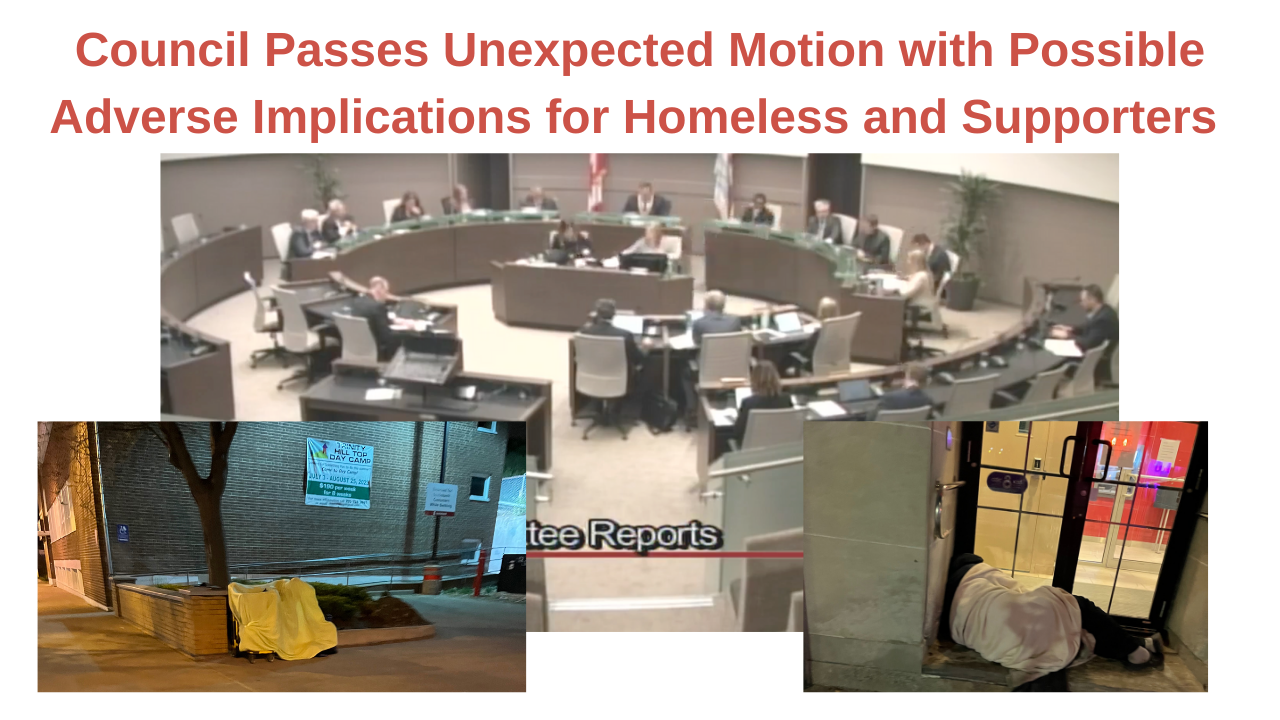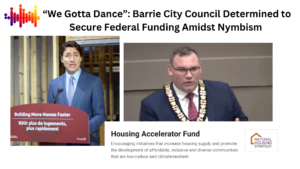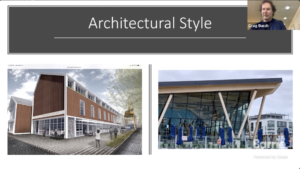During an unexpected development at May 17 Barrie City Council meeting at city hall, a motion set forth by Ward 10 Councillor Bryn Hamilton and seconded by Ward 9 Councillor Sergio Morales was unanimously passed. However, this motion, introduced with no prior public knowledge, sparked several controversies.
As Hamilton introduced the motion, she emphasized the urgent need for a focused plan to combat chronic homelessness in Barrie.
“We have 350 to 400 individuals within our city limits that identify themselves as homeless,” stated Hamilton, referring to data gathered before the COVID-19 pandemic. She believes the current numbers are likely higher, with around 70-80 per cent attributing their homelessness to mental health issues or substance abuse.
Nonetheless, she swiftly attributed a variety of issues, such as the presence of drug paraphernalia in parks, business shutdowns, and the cancellation of Barrie Minor Baseball’s diamond permits at Queen’s Park due to drug activity, to the homeless population without any evidence.
She also blamed the homeless for allegedly enticing women into tents, an assertion echoed by Mayor Alex Nuttall during the discussion of the motion.
Contrary to the allegations, the Police Department informed Barrie Community Media that there are no records of such incidents from early 2022. The Mayor’s office, despite numerous inquiries, didn’t confirm if these assertions were cross-checked with the police but maintained that “incidents were described to him while door-knocking during the (November 2022 Council) election by residents.“
Moreover, the Mayor seems not to have corroborated these claims with the Police Department, which expressed surprise at such statements. They further added, “We will also be reaching out to members of Council to request additional details.”
There are four parts to the motion with part one being the biggest with detailed list of items proposed to what council called addressing homeless crisis in Barrie.
The motion instructs the city’s chief administrative officer to explore options, primarily involving soliciting additional provincial and county funds for initiatives like the RAAM Clinic, long-term counseling, and a mobile outreach program. It also seeks funding for supportive housing and employment transition aid, but lacks concrete city-led plans.
While the motion predominantly tasked staff with liaising with the province and county for housing solutions, it specifically mandated them to scrutinize potential alterations to city by-laws and protocols. These include the proposed bans on the use or distribution of tents or tarps and food or grocery products in public spaces without a permit. It also urges a quicker response to park camping and public space clutter. Other propositions involve prohibitions on payments to panhandlers, discouraging signs for panhandling, and a call for a public meeting to deliberate on the persistent homelessness, addictions, and mental health issues in Barrie.
Mayor Nuttall has clarified that the motion under discussion is not an immediate ban on aiding the homeless, but instead a step towards exploring different options. Public input is welcomed during upcoming Community Safety Committee meetings to voice concerns and provide suggestions. However, this potential legislation, even at the exploratory stage, has been strongly criticized by activists and non-profit organizations, who view any hindrance to aiding the homeless negatively.
Furthermore, Nuttall confirmed that the motion permits funding up to $825,000 annually for two years to support any initiatives detailed in the first paragraph as necessary.
Following the meeting, Councillor Kungl expressed satisfaction over the allocation of funds for a cooling centre. However, former Ward 2 Councillor Keenan Aylwin highlighted that no specific funds have been earmarked for this purpose. He warned that these resources could be used for enforcement measures restricting aid distribution in public spaces.



